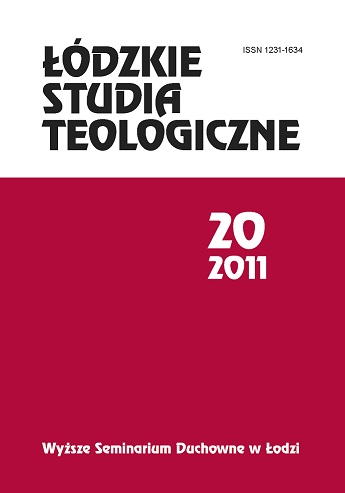Religia a zabobon
Religion vs. superstition
Author(s): Waldemar KulbatSubject(s): Christian Theology and Religion, Customs / Folklore, Metaphysics, Philosophy of Religion, Sociology of Religion
Published by: Wyższe Seminarium Duchowne w Łodzi
Keywords: superstition; superstitions; occultism; magic; folk religiosity;
Summary/Abstract: The tragedy of contemporary times lies not only in the lack of faith in God, but also in the invasion of false spirituality. God, the Creator, is replaced with idols, His substitutes. The feeling of spiritual disorientation prevalent today stems from the loss of awareness of essential identity of God. That is why it is worth examining the long-prevailing spiritual threat of practising superstitions, still widespread today. The present paper aims to examine this phenomenon in the light of the current state of knowledge in the fields of history, religious science, psychology and pastoral theology. According to the etymological definition of the word, superstition means idolatrous worship, or the cult of false gods (Lat. Superstitio, Gr. Deisidaimonia). Among many definitions in circulation, the most pertinent one adopted for the purpose of this paper is that superstition is an irrational and feardriven disposition towards impersonal powers, that verges on religious experience, although, simultaneously, is contrary to religion. Superstition relates to a false faith, i.e. beliefs and practices at variance with Christian religion. The present paper discusses some of superstitious practices and attempts to answer the following questions: What is the difference between religion and superstition? What are the underlying historical sources, contexts and conditions for the persistence of superstitious beliefs and practices? Can a notion of „a superstition” from a religious and theological perspective be retained as sensible and useful? Is there a connection between superstitions and rural folk religiosity? The paper also provides an outline of theological assessment of superstitious mindset and practices and gives some pastoral guidelines for the shaping of mature and critical religious attitude, free from superstitions.
Journal: Łódzkie Studia Teologiczne
- Issue Year: 20/2011
- Issue No: 1
- Page Range: 129-144
- Page Count: 16
- Language: Polish

